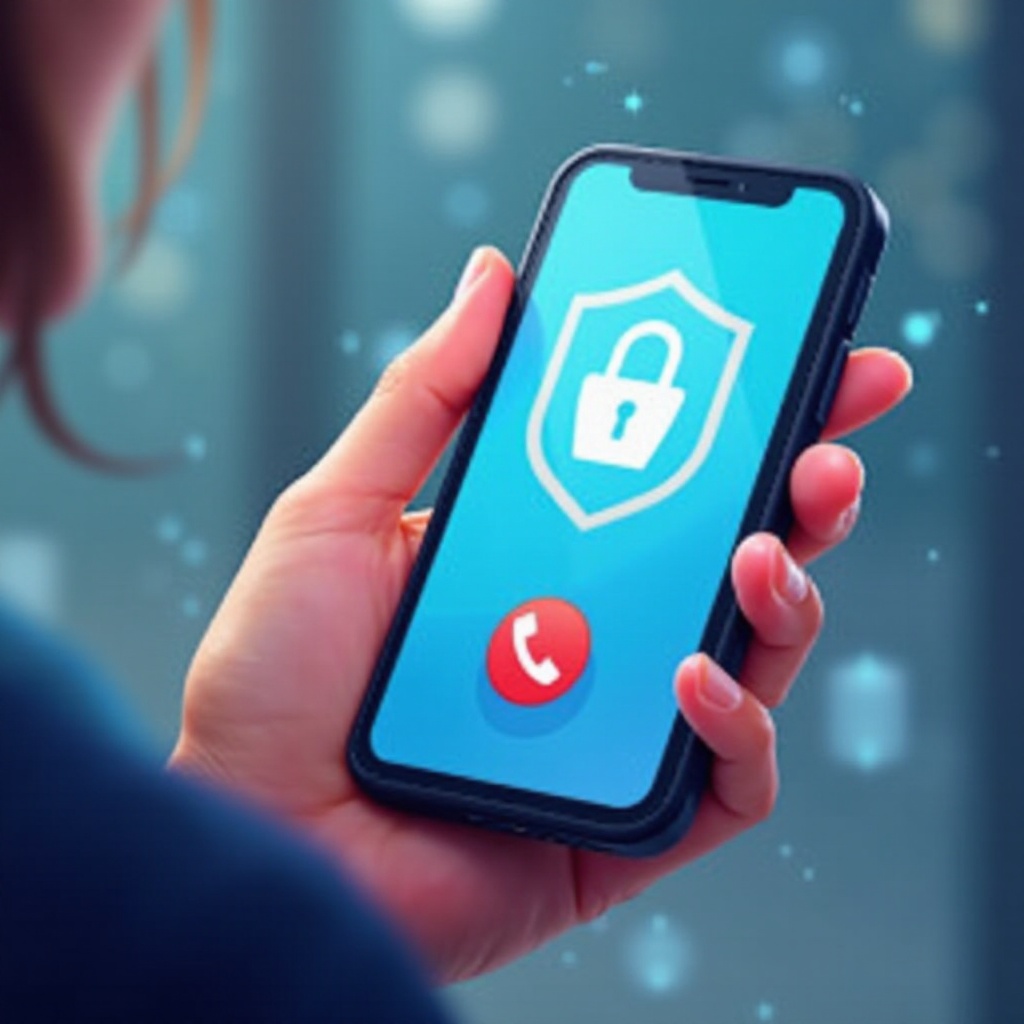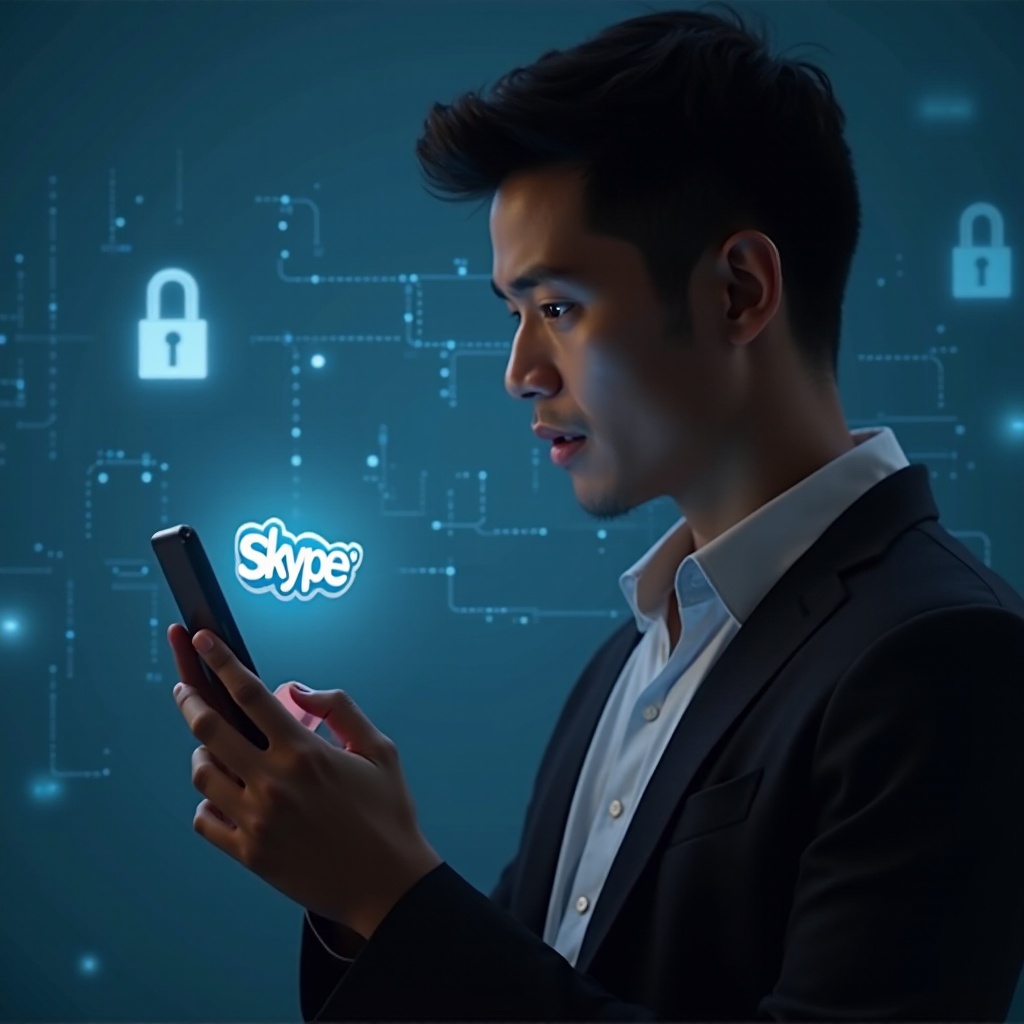Introduction
Privacy in mobile communications plays a crucial role in ensuring that personal information and conversations remain protected. Skype, a pioneering platform in online communication, offers phone call encryption to safeguard users’ data. This encryption technology is critical, especially with the increasing concerns about data breaches and cyber threats. By understanding how Skype encryption works and its advantages, users can make informed decisions to enhance their mobile privacy.

Understanding the Basics of Skype Phone Call Encryption
Encryption is the process of encoding information so that only authorized parties can access it. Skype employs end-to-end encryption, meaning that the data is encrypted on the sender’s device and only decrypted on the receiver’s device. This ensures that no intermediaries, including Skype itself, can eavesdrop.
Skype’s encryption works using strong cryptographic algorithms. When you make a call, your voice data is converted into digital data, which is then encrypted before being transmitted over the internet. The recipient’s device decrypts the data to make your voice audible again.
This robust encryption mechanism offers protection against unauthorized access, such as hackers intercepting your calls. By leveraging these security measures, Skype offers peace of mind for users concerned about their privacy.

How to Ensure Your Skype Calls are Encrypted
Ensuring that your Skype calls are encrypted involves several straightforward steps. Here’s how you can confirm and maintain the security of your calls:
- Update Skype Regularly: Always use the latest version of Skype. Updates frequently contain security patches and enhancements that keep your encryption strong.
- Use a Secure Network: Avoid making Skype calls over public Wi-Fi networks, which are more susceptible to interception by malicious parties. Connecting through a private, secured network is advisable.
- Check Encryption Status: During a call, ensure that the message ‘Skype-to-Skype voice calls are free and encrypted’ appears. This confirms that your call is secured.
- Enable Two-Factor Authentication: Adding an extra layer of security to your Skype account helps protect against unauthorized access, ensuring that even if your password is compromised, your account remains secure.
- Be Cautious with Add-Ons: Use official Skype add-ons and avoid third-party tools that could compromise your call security.
By following these practices, users can maximize the security of their Skype communications and significantly reduce the risk of privacy breaches.
Comparing Skype Encryption to Other Platforms
To better understand Skype’s encryption capabilities, it’s helpful to compare it with other popular communication platforms.
Skype vs. WhatsApp
WhatsApp also uses end-to-end encryption for calls and messages. Both platforms aim to ensure that data remains private from sender to receiver. However, WhatsApp’s encryption is implemented in all forms of communication by default, making it a robust choice for users seeking uncompromising privacy across different types of interactions.
Skype vs. Signal
Signal is often regarded as the gold standard for secure communication. Like Skype, Signal uses end-to-end encryption, but it goes a step further with encrypted metadata and forward secrecy, which ensures that even if encryption keys are compromised in the future, past communication remains secured. For users seeking the highest level of privacy, Signal provides comprehensive security features that surpass those offered by Skype.
Skype vs. Zoom
Zoom has made headlines for both its popularity and concerns about its security practices. Zoom offers end-to-end encryption for calls, but it’s not always enabled by default. Additionally, Zoom has faced criticisms and concerns over its handling of user data. In contrast, Skype maintains consistent and transparent encryption policies, making it a more trustworthy option for users focusing on security.
By evaluating these platforms’ encryption features, users can determine which service best meets their privacy needs.
Addressing Common Security Concerns
Despite robust encryption, users often have concerns about the security of their Skype calls. Addressing these concerns can help reassure users and provide clarity on best practices.
- Interception by Hackers: While encryption protects against most interception attempts, users should also employ strong passwords and two-factor authentication to prevent hackers from accessing their accounts.
- Software Vulnerabilities: Regular updates are crucial as they ensure that any discovered vulnerabilities are patched. Skype continuously works on enhancing its security protocols.
- Privacy of Metadata: Although Skype encrypts voice data, metadata such as call duration and participants may still be accessible to Skype. Users concerned about metadata privacy should consider additional measures like using a VPN.
- Phishing Attempts: Users should remain vigilant against phishing attempts that trick them into revealing personal information. Always verify the authenticity of messages and links, even if they appear to be from Skype.
By addressing these concerns and applying best security practices, users can enjoy enhanced privacy during their Skype calls.
The Future of Encrypted Phone Calls
The future of encrypted phone calls is promising, with increasing focus on privacy and security. Advances in technology will likely lead to even more robust encryption algorithms and methods. Additionally, with growing concerns about data privacy, more communication platforms will adopt end-to-end encryption by default.
Companies will focus on making encryption more user-friendly, ensuring that all users can easily secure their communications without requiring technical expertise. These future developments will provide users with greater confidence and security in their digital communications.

Conclusion
Skype phone call encryption offers notable benefits in safeguarding mobile privacy. By understanding how encryption works, implementing best practices, and being mindful of security comparisons, users can ensure their communications remain private. As technology advances, the commitment to privacy and security will only strengthen, offering ever-increasing protection for users.
Frequently Asked Questions
Is Skype completely encrypted?
Yes, Skype provides end-to-end encryption for voice calls, ensuring that only the sender and receiver can access the call content.
How can I check if my Skype call is encrypted?
During a Skype call, look for the message indicating encryption status, such as ‘Skype-to-Skype voice calls are free and encrypted.’
What are the best practices for secure Skype calls?
Keep Skype updated, use a secure network, enable two-factor authentication, check encryption status during calls, and exercise caution with third-party add-ons.